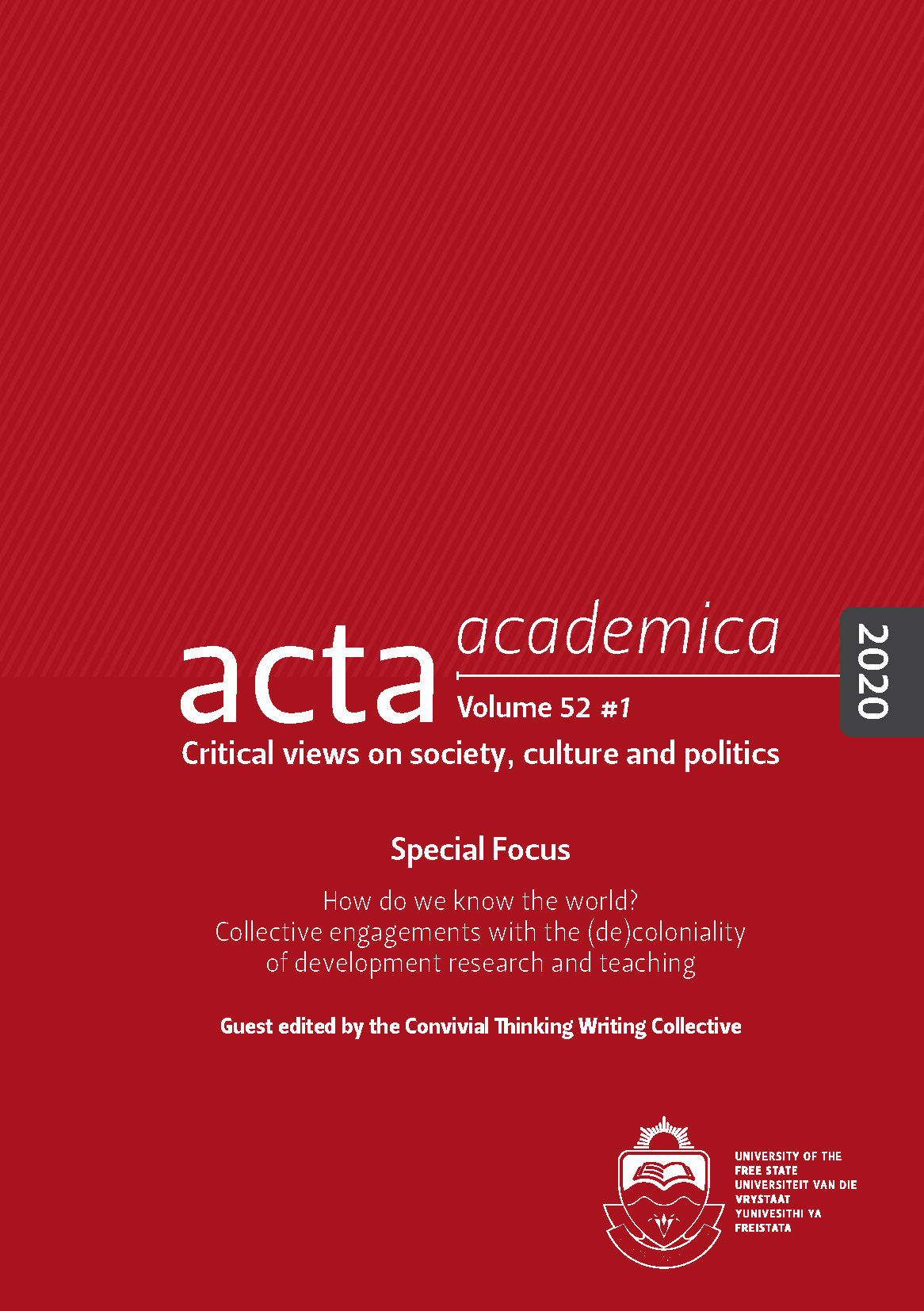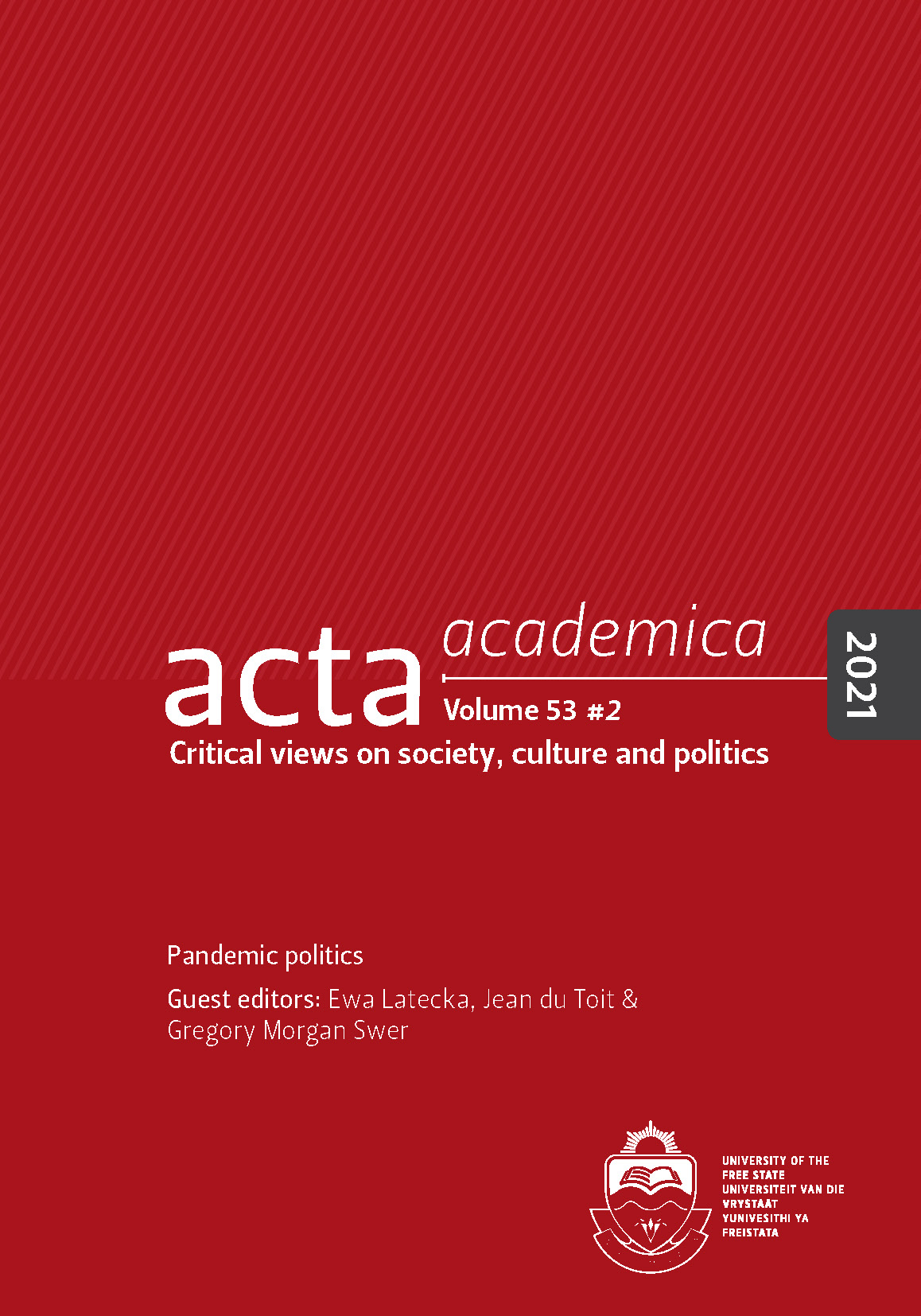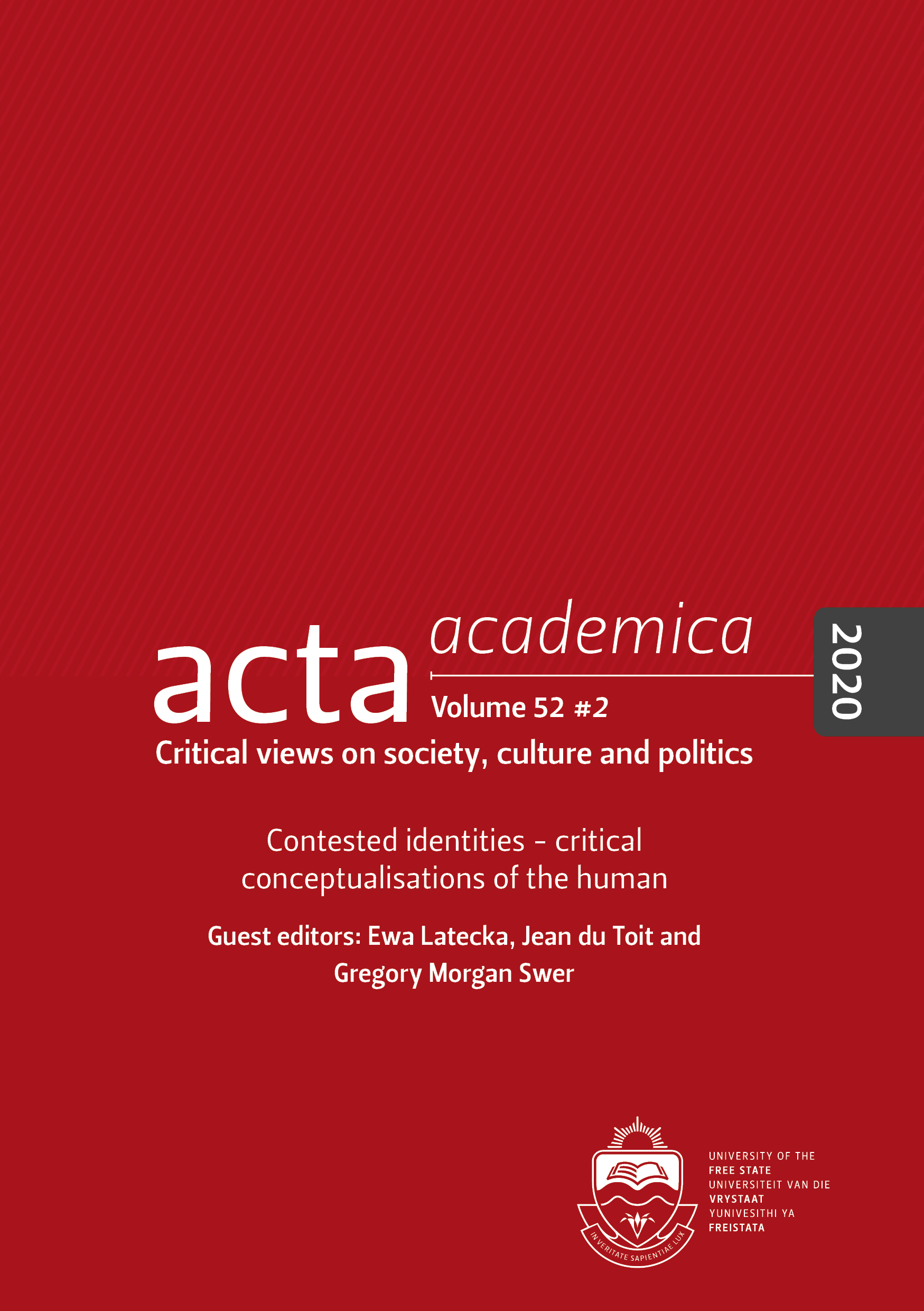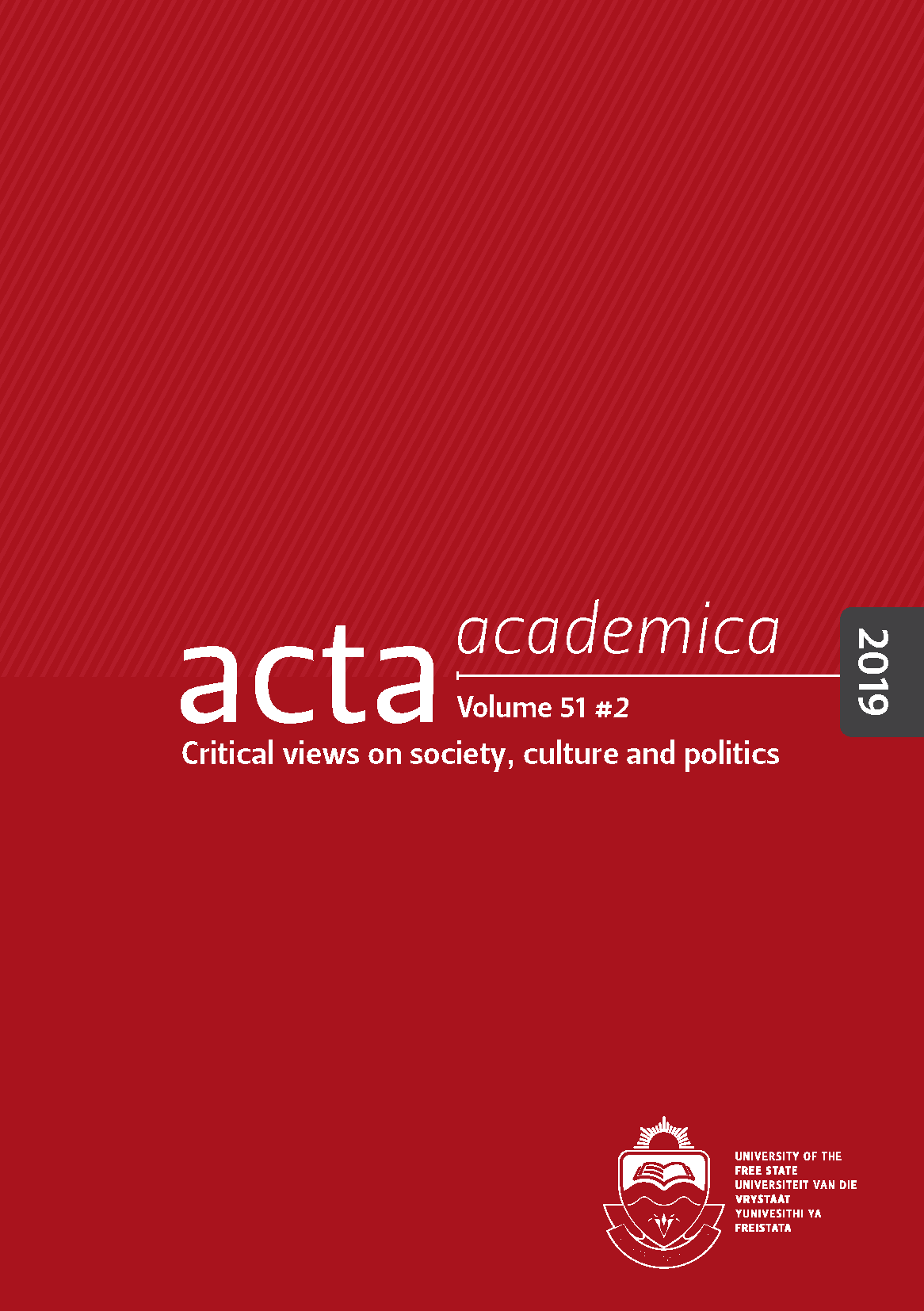Archives
-
Critical Theory and nature in the 21st century
Vol. 56 No. 2 (2024) -
Special issue - Culture industry 2.0: Africa, Global South, world
Vol. 55 No. 2 (2023)This special issue gathers together a broad range of theoretical approaches that address the pressing need for the analysis of the contemporary culture industry in the Global South and beyond. Through the lenses of the history and theory of Critical Theory (and African critical theory traditions), digital culture, and neoliberalism and its effects, as well as suggestions towards an environmental praxis, the culture industry of Adorno and Horkheimer is revisited in the spirit of renewal and positive critique.
-
Special issue - Xenophobia in Africa
Vol. 54 No. 2 (2022)Guest editors: Stephanie Cawood and Peter Olapegba
This special issue brings together a range of different perspectives and areas of expertise to contribute to an interdisciplinary exploration of xenophobia in Africa.
-
Vol. 54 No. 1 (2022)
In Acta Academica 54(1) we are proud to announce the inclusion of Platform: in theory.
Platform: in theory aims to provide a space dedicated to the advancement of theory in understanding and acting within the social world. It is intended as a space for on-going conversations around specific topics where the results are archived for subsequent reference and reflection; a platform that gives voice to a variety of perspectives and arguments on defined issues, and invites serious responses. As such, it works towards a circle of critical thinkers, a public intellectual community.
In this issue a project on temporality within the context of global warming is introduced.
Peter Vale and Gerhard Maré serves as editors of Platform: in theory in collaboration with Acta Academica’s editorial team. A brief explanation is offered here of the initiation and travels of Platform as an intellectual intervention.
-
Platform: invitation for collaboration and conversation
Nature of the collection (Platform: in theory archived):
In Acta Academica 54(1), 2022, Platform: in theory appears in a fourth iteration. In this issue a project on temporality within the context of global warming is introduced; a brief explanation is offered of the initiation and travels of Platform as an intellectual intervention.
The archive of the initial stages in the journey, in the journal Transformation, are presented here, with some explanatory notes on the context (the editorial board of Transformation has given permission to reproduce the content):
The first appearance was in 2020 in Transformation 104. It provided an editorial by Peter Vale and Gerhard Maré, motivating for the importance of a space dedicated to the advancement of theory in understanding and acting within the social world. We drew attention then, and continue to do so, especially to the effects of the climate catastrophe on every aspect of life on planet earth. This serves as the ether within which the collaborations we ask for are located. The editorial is followed by an article by Andrew Nash on the life and work of Peter Hudson.
In Transformation 105 (2021) we wrote another editorial, motivating for collaboration, and alerted readers to the “keywords” approach to exploring how language serves to justify and maintain power in society, first utilized by Raymond Williams.
The final appearance in Transformation (issue 106) was in 2021. Along with an editorial, it carried an article by John Higgins, explaining Williams’ purpose with his Keywords: a vocabulary of culture and society, arguing for the continuing importance of such an approach, and offering some examples – including “keywords” and “theory” as keywords.
Early in 2022 Gerhard Maré resigned as member of the editorial board of Transformation, but he and Peter Vale are continuing this initiative, Platform, through the journal Acta Academica and with the support of its editors, and with continuing wider collaboration in the projects we have initiated.
Gerhard Maré and Peter Vale
-
Special issue - Right now: contemporary forms of far-right populism and fascism
Vol. 54 No. 3 (2022)Recent years have seen the global emergence of populist political formations, leading certain scholars to term our present age the “age of populism” and some politicians, such as Hungary’s current prime minister Viktor Orbán, to proclaim that “the era of liberal democracy is over”. For some, the rise of contemporary populism inherently represents the resurgence of forms of reactionary populist nationalism, ranging from the ‘radical’ to the ‘extreme’ right, and the revitalization of forms of ideology that may be termed ‘neo-fascist’.
In light of the revitalization of such political formations, the current special issue serves to critically investigate contemporary forms of far-right populism and fascism in the Global South.
-

Vol. 52 No. 1 (2020)
The latest issue of Acta Academica contains the Special Focus: How do we know the world? Collective engagements with the (de)coloniality of development research and teaching.
The Special Focus was guest edited by the Convivial Thinking Writing Collective. Convivial Thinking (www.convivialthinking.org) is a collective platform seeking to surpass boundaries of origin, ethnicity, professional affiliation and academic disciplines in order to give space to inclusive, interdisciplinary and alternative approaches to mainstream methods of knowledge production, especially in the context of “development”. The articles in the Special Focus reflect these concerns.








